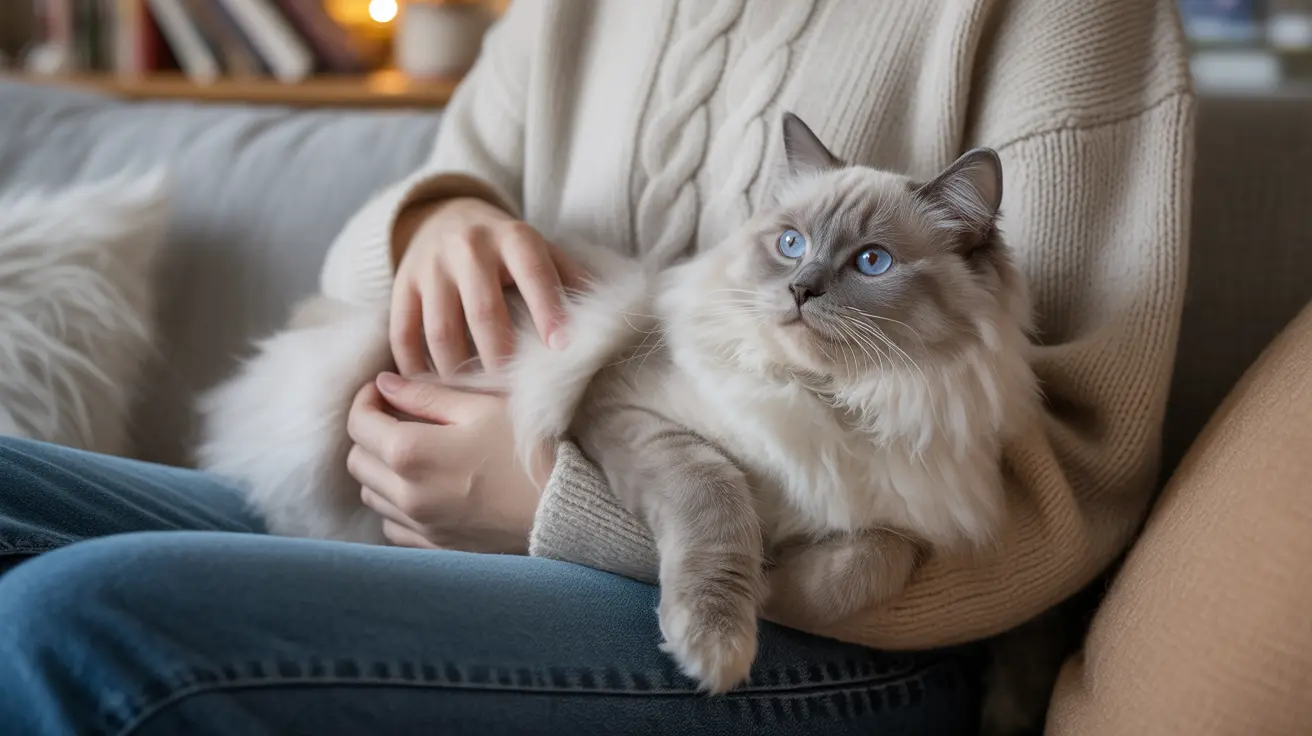The Biology of Cat-Human Bonding
When you interact with your cat, your brain releases oxytocin, often called the "love hormone." This same chemical is responsible for the bonds between parents and children, making our connection with cats remarkably similar to family relationships. Studies have shown that simply petting a cat can lower cortisol levels and blood pressure, explaining why coming home to your purring companion feels so calming.
Research has revealed that cats have actually evolved to bond with humans, developing specific genetic changes that enable them to form deep emotional connections with their human families. This biological adaptation makes them uniquely suited to be our companions.
The Psychology Behind Cat Love
Cat lovers often share certain psychological traits, including higher levels of sensitivity and empathy. The independent nature of cats particularly appeals to people who value autonomy and personal space, creating a mutual respect that strengthens the bond.
Unlike more dependent pets, cats choose when to show affection, making their love feel especially meaningful. When your cat chooses to curl up in your lap or greet you at the door, it creates a powerful feeling of being specially selected by your pet.
Health Benefits of Feline Companionship
The impact of cat ownership on human health is well-documented. Studies have shown that cat owners generally experience:
- Reduced risk of heart disease and stroke
- Lower stress levels and blood pressure
- Decreased feelings of loneliness and depression
- Improved mental health and emotional well-being
The gentle purring of a cat has even been found to have therapeutic properties, operating at frequencies that can promote healing and reduce anxiety.
The Unique Nature of Cat Affection
Unlike dogs, who often show constant, enthusiastic affection, cats express their love in more subtle ways. Understanding these unique expressions deepens our appreciation for their companionship:
- Slow blinking as a sign of trust and affection
- Bringing "gifts" as a show of care
- Choosing to sleep near or on their favorite humans
- Gentle head-butting to mark their territory and show belonging
The Evolutionary Bond
Our connection with cats spans thousands of years, dating back to ancient civilizations where they were both practical partners in rodent control and revered companions. This long-standing relationship has created an intricate web of mutual understanding and benefit that continues to evolve today.
Frequently Asked Questions
Why do I feel such a strong emotional bond and love for my cat?
The strong emotional bond you feel with your cat is supported by biological processes, including the release of oxytocin during interactions, and the natural evolution of cats to form social bonds with humans. This connection is further strengthened by daily shared experiences and mutual trust.
How does owning a cat benefit my mental health and reduce stress?
Cat ownership reduces stress through multiple mechanisms: physical contact lowers cortisol levels, their presence provides comfort and companionship, and caring for them gives a sense of purpose and routine. The act of petting a cat also releases feel-good hormones like serotonin and dopamine.
What personality traits are common among people who love cats?
Cat lovers often display higher levels of empathy, independence, and sensitivity to others' emotions. They typically value personal space and quiet companionship, matching well with cats' natural tendencies.
Why do cats seem to choose certain people and how does that affect our relationship?
Cats are naturally drawn to people who respect their boundaries and understand their communication cues. When a cat chooses to bond with someone, it creates a special feeling of being selected, making the relationship feel more meaningful and authentic.
Can the unique behavior of cats explain why they provide comfort without demanding attention?
Yes, cats' independent nature allows them to offer companionship on their own terms, providing comfort through their presence without constant demands for attention. This balance creates a uniquely satisfying relationship that many people find particularly comforting.
Whether you're a longtime cat owner or new to feline companionship, understanding the depth and science behind why we love our cats so much can help you appreciate and nurture this special bond even more. Remember, every cat-human relationship is unique, making each connection particularly special in its own way.






